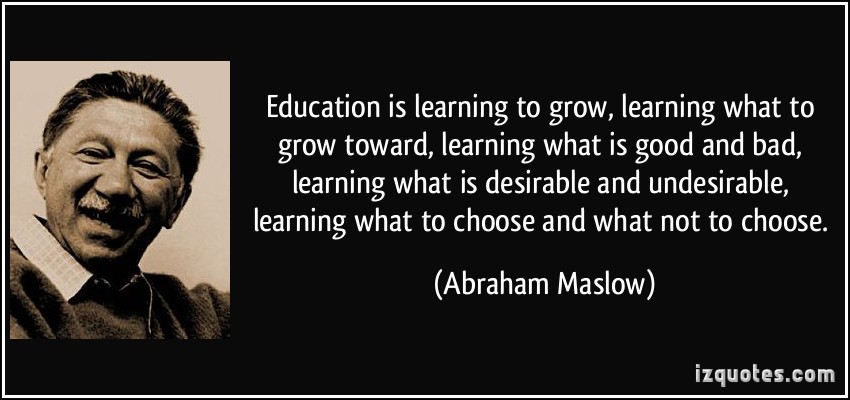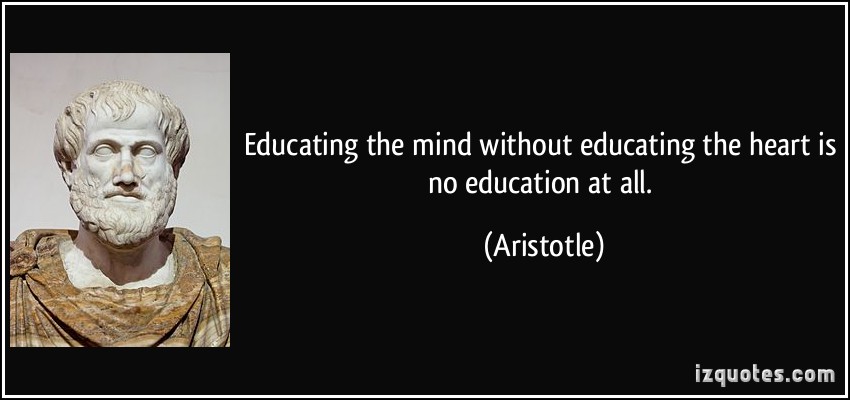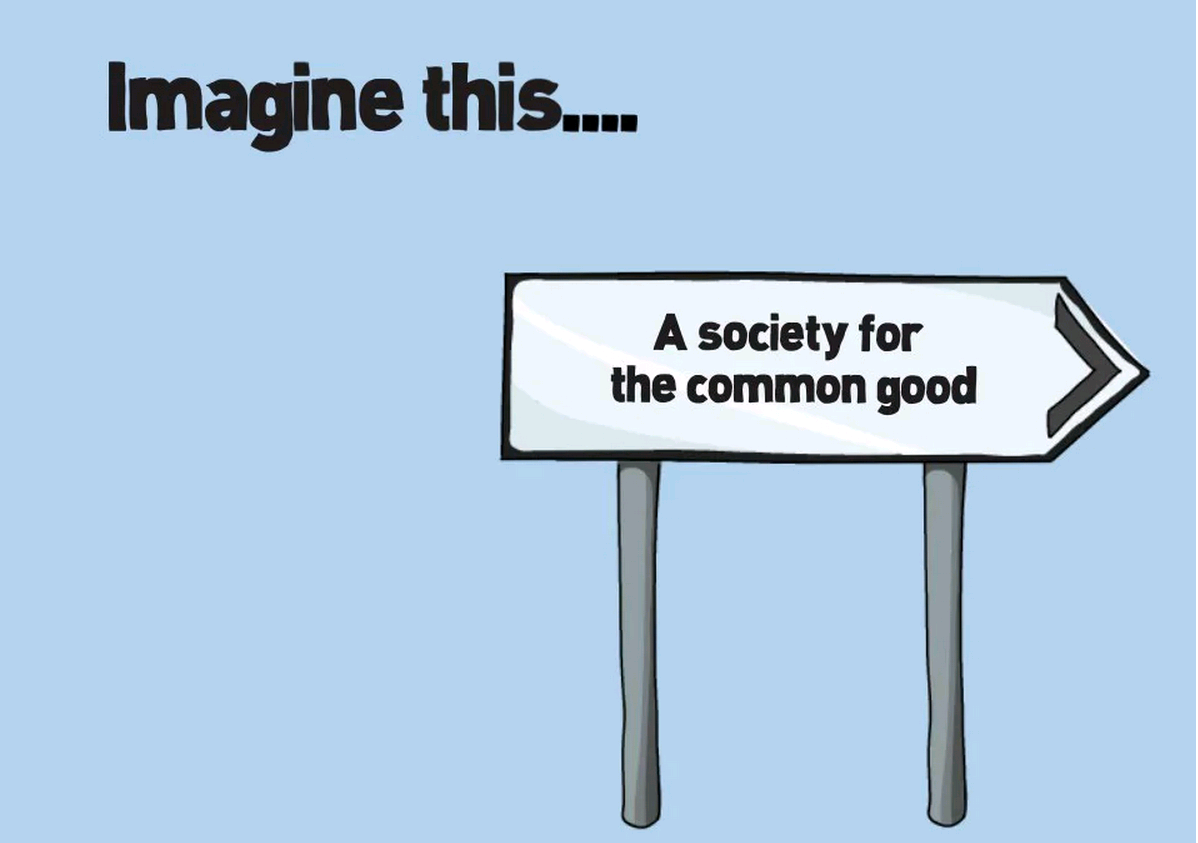- Details
- Written by: Kamran Mofid
- Hits: 3344

We live in a world with many complex problems, at all levels, local, regional and global. It is said thateducation is the key that opens the door to a more harmonious world.
The pertinent question is: What kind of education and learning would help us address these challenges and create a sustainable world and a better life for all? T.S. Eliot posed the question: "Where is the Life we have lost in living? Where is the wisdom we have lost in knowledge? Where is the knowledge we have lost in information?"
Reflecting on the questions above, we are going to need an education system that respects planetary boundaries, that recognises the dependence of human well-being on social relations and fairness, and that the ultimate goal is human happiness and ecological sustainability, not merely growth of material consumption.
In short, we need to listen to our hearts, re-learn what we think we know, and encourage our children to think and behave differently, to live more in synch with Nature.
If we do this successfully we can become wiser as a species, more “eco-logical.” We and the planet that gave birth to us can be happier and healthier, healed and transformed.
This must be very clear and obvious to everybody. But, it seems, not that obvious to our dogmatic, agenda-driven, neo-liberal, mumbo-jumbo- loving politicians and the so-called experts with their fancy MBAs from the fancy universities!
These fanciful people have created an education system which is devoid of any values, needed to build a better life, a better person, a better world.
Nowhere better this can be noted than a look at ‘their’ higher education bill (see below). It is mind- boggling, how dogmatic and destructive our democratically elected politicians can be!
I wonder if our education system and values are the main reason for why we keep voting against our own self interest! Think about it!
This higher education bill forces market dogma on our universities
‘Proposals to judge teaching quality by graduate earnings are a convenient way to ignore the causes of rising debt, falling salaries and the widening income gap’

This week we have learned that the number of state school pupils going to university is falling. At the same time, graduate earnings are stagnating, while the poorest students are being plunged into more and more debt. You might think it’s about time for the most radical reforms to higher education since 1992. Sadly, the new higher education bill is going to make it worse.
Our government says it is committed to widening attendance, pitching university fees as a trade-off for higher salaries. There is plenty to dislike about a bill that will turn our universities into a competitive marketplace of winners and losers, but one of its worst aspects is that it measures teaching quality according to the earnings of graduates. This is not fair or sensible. This is the dogma of market-imposed education: if you do well, you deserve it. If you don’t, it’s your fault.
Our government is setting up a system where failure to get a high-paying job is blamed on university teaching. It’s nothing to do with being working-class. Nothing to do with the colour of your skin. Nothing to do with the gender pay gap. It is simply because you didn’t invest enough in your education. It is because you didn’t make your market choice wisely enough.
It would also be true in reverse: a high-quality education is your ticket to a high salary. Tell that to black women.
If this were true, then it would also be true in reverse: a high-quality education is your ticket to a high salary. Tell that to black women. It’s not just wrong – it’s insulting to everyone who has to deal with structural inequalities across society.
Obviously, the amount you earn is affected by far more than what degree you took and how well you were taught. Your gender, sexuality and ethnicity play massive roles. Your social background plays a massive role. The state of the economy plays a massive role. Using salaries as a measurement of teaching quality makes no sense at all; still less as a justification for setting higher fees. Granted, there are benchmarks to widen participation, but this is a small and inadequate concession in the context of full marketisation.
Everyone wants our higher education system to be amazing. Nobody argues with that. But trying to judge higher education teaching according to graduate earnings is pointless. There is a simple way to test this. The next time you’re negotiating a pay rise, try telling your boss how satisfied you were with your undergraduate seminars. See how that goes.
The universities that will succeed if the higher education bill passes will be those that best prepare their students to earn higher and higher salaries. Forget the social value of your education: your salary is the measurement of your worth. Keep this in mind the next time you have to go to a hospital. That nurse who is caring for you – who may have £100,000 of debt, by the way – earns way less than a hedge-fund manager. According the bill’s logic, that nurse must have had a rubbish education. They probably have absolutely no idea what they’re doing.
The government is forcing market dogma onto our universities. Students will become consumers. Life after education will become a return on investment, with winners and losers. And, as is usually the case, the losers will be people who were already losing.
This article by Malia Bouattia, president-elect of the National Union of Students, and its black students’ officer, was first published in the Guardian on Monday 8 August 2016.
And finally, given the rubbish choices on offer at most “Centres of Learning and Excellence”, there is no wonder why they are now offering Bogof (Buy one get one free) degrees all over the place! Mind-boggling, again!
- Details
- Written by: Kamran Mofid
- Hits: 3299

Photo: thechronicleofeducation.com
Given the state of my anxiety, concern and disbelief about the state of our higher education system in general and of our universities in particular, I have been doing my bit by writing a few articles, blogs, books, you name it, here and there, to highlight the consequences of a market-based, profit oriented, student (I am sorry, I meant Customer-led) education in this country and elsewhere (see a short sample below):
“A mark of barbarity”: Universities today what Nietzsche had foreseen in 1872
Stop the Seeds of Destruction: Toward teaching economics of the real world
Calling all academic economists: What are you teaching your students?
The Journey to Sophia: Education for Wisdom
Today this excellent story (see below) caught my eyes. I couldn’t have done it better myself! So true those words are and how so comic our education values have become.
Enjoy reading it and pity those who pay 1000s and 1000s of Pounds for this sort of the so-called education.
Buy-one-get-one-free degrees: when higher education meets discount pricing
‘In a bid to attract students, universities are promising cheap master’s courses to undergraduates, money-off deals, family and friends offers – and even Premier League football tickets’

Buy on Get one Free!!
Don’t waste
‘Everyone loves a bargain and we are now being inundated with ‘amazing’ special offers for a ‘limited time’ only. It might be that you have already succumbed to a few ‘3 for 2’ and ‘BOGOF’ offers. But are they really as good as they sound? Think before you buy. Do you really need to buy the bumper box of biscuits or the three toiletry sets for the price of two? Only buy food and drink you really need, otherwise it will just end up in the bin. And only buy gifts that your recipients will actually enjoy.’
Captions by Gareth Robinson. Photo: telegraph.co.uk
Name: Bogof degrees.
Age: Brand new.
Appearance: Incredible value for money.
Hello, I’m thinking about going to university. Stop right there, my fine fellow. Have I got a guaranteed, once-in-a-lifetime, money-saving, wallet-caving, brain-straining bargain for you!
You sound suspicious. On the contrary, good sir. I am a representative of one of Britain’s finest seats of learning, and today I’m offering you a deal so insane that you’ll ignore my insensitive reference to mental illness: a bogof degree!
A what? A bogof degree! Enrol for an undergraduate course with me today and I’ll give you a free – YES, FREE! – master’s course worth an incredible £10,000! All you need to do is sign on the dotted line.
Are you for real? Yes! We need to keep up with the market. Sheffield is giving top students the chance of a free master’s course worth up to £10,000, Kingston is offering 25% off a master’s and Kent will give you £1,000 off and 10% off the tuition fees of any spouses or siblings who also want to do a degree.
This is depressing. God, I know. Don’t tell anyone, but we’re being pummelled. There are fewer 18-year-olds around than in previous years – and Brexit will probably stop overseas students from coming here – and we’ve got spaces to fill. It’s tacky, and I’m ashamed of myself, but what can you do? Anyway, STEP RIGHT UP!
This isn’t what education is about, is it? What do you mean?
Surely it’s about expanding your horizons and gaining independence, not about materialistic freebies. Oh, I can tell you’re a hard nut to crack, sir. What if I threw in some Premier League football tickets? That’s what De Montfort is doing.
Good God, is it really? Please sir, I need this. Just say the word. You want an iPad too? We’ve got iPads as far as the eye can see! I’ll give you 10 iPads!
You’re doing nothing to dismiss the sensation that education is becoming something you can buy off the peg. Fine, I’ll give you the keys to my car and that’s my final offer.
Do say: “Education is not simply a monetary transaction.”
Don’t say: “Chuck in a set of steak knives and I’m in.”
This story was first published in the Guardian on Monday 8 August 2016
My Values-led Education
Some say that my teaching is nonsense
Some say that my teaching is nonsense.
Others call it lofty but impractical.
But to those who have looked inside themselves,
this nonsense makes perfect sense.
And to those who put it into practice,
this loftiness has roots that go deep.
I have just three things to teach:
simplicity, patience, compassion.
These three are your greatest treasures.
Simple in actions and in thoughts,
you return to the source of being.
Patient with both friends and enemies,
you accord with the way things are.
Compassionate toward yourself,
you reconcile all beings in the world. Lao Tzu
- Details
- Written by: Kamran Mofid
- Hits: 3040

Photo: volonteurope.eu
For the Common Good: Unleashing the Power of Passion, Purpose& Hope
Why common good matters
‘Only by inspiring a spiritual and practical commitment to the common good can we help make our common life better.’
There is an ancient idea that we have lost, but can and should find again. It’s called simply the common good. It goes back many centuries, but the need for a new dialogue about what it means and what its practice would require of us has never seemed more critical.
But what is the Common Good? A Brief Introduction
Notions of the Common Good have been central to conceptions of society since Plato and Aristotle, and have been described in fairly consistent ways since then. There has been general agreement that the search for “…the common good is disciplined yearning, deliberation, judgment, and action in concrete realization of the best, most choiceworthy way to live” and that “Its most basic meaning is that the community and its institutions should serve the good of all its citizens and not just the restricted good of a particular ruler or class.”
Put more simply, the Common Good is advanced when society’s institutions, including foundations, operate in the interests of the broadest possible swath of people.
In short, the Common Good is much more than the aggregate of individual goods and accomplishments. Rather, it reflects both the morality and the enlightened self-interest that allows institutions across society to operate so that all might enjoy a life of justly and humanely distributed resources, rewards, responsibilities and obligations.
The Journey to Build a Better World for the Common Good
